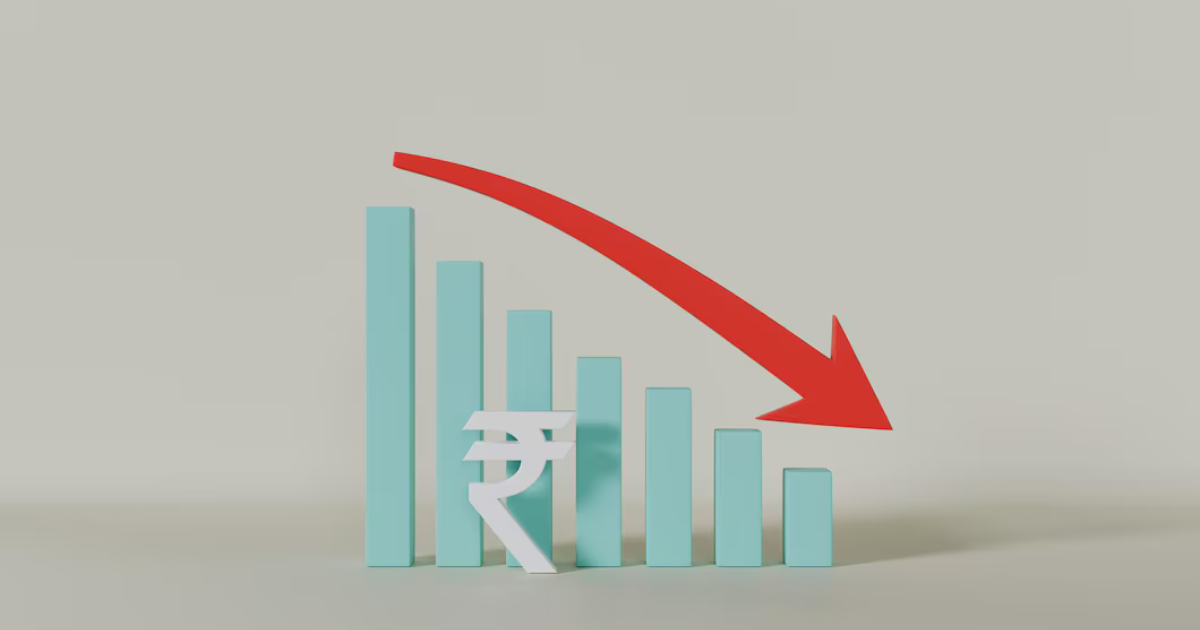Table of Contents
Recently, Donald Trump won, and something significant happened – the Indian rupee fell to its lowest level ever, reaching 84.38 compared to the U.S. dollar. This sentence demonstrates how when the U.S. dollar becomes stronger, it really changes the worth of money in places that are still trying to grow. It is all occurring like this because people putting their money into things are really confident regarding how the U.S. economy is doing—but alternatively, they’re confused regarding what’s next for the entire global market. Let’s delve into why this happens and discuss what it might mean down the road for India.
The Impact of Trump’s Win on Global Currencies
The dollar has really picked up since Donald Trump won the election because people think his economic ideas of lowering taxes, spending more on items such as roads and bridges, and maybe cutting down on trade rules, could make the economy stronger; this has essentially thrown other money, especially from places that are still becoming more organized, like India, unbalanced. It’s not only India’s currency under pressure, Trump’s major win is changing things all over the world in financial markets.
The INR took a major hit and dropped to a historic low of 84.38 because traders are trying very hard to get the dollar since it’s very powerful today. When many foreign investors begin moving their money to the dollar, they are taking their money away from other places, including India; this occurs often whenever things become shaky, and everyone wants something that doesn’t change much, which is usually the USD since it’s the currency that is used the most for buying and selling; this whole process of offering other investments for the safety of the dollar is pretty common in the financial world.
Domestic Concerns: Inflation and Trade Deficits
Because India has to buy a lot of important items from other countries, such as oil, the economy becomes shaky when the rupee’s value drops. A drop in the rupee’s value means India has to spend more money to buy the same goods, making everything pricier — especially because they are already dealing with excessively high inflation; this situation hits regular people and businesses hard since the dollars they need to buy things from abroad cost more—ending up with higher prices for essentially everything. When the dollar gets stronger, it changes things for India by making it more expensive to get what they need, adding more problems to an already tight economic situation.
Also, when the rupee is not strong, it’s awful for India’s trade situation; things from other countries cost more, so India might buy less and spend more, making the difference in trade even bigger. This might make the rupee’s situation worse. Even though people selling items to other countries could make more money because their goods are now cheaper for others to buy, this little helpful event probably won’t make up for the larger problems that come with the rupee losing value.
The Role of the Reserve Bank of India
The Reserve Bank of India (RBI) has been helping to stop the rupee from losing a lot of its worth very fast by using India’s foreign money supply. They are doing this because the rupee started to depreciate fast. Although their efforts have kept the rupee from dropping more, keeping this for a long time might be hard and expensive. By doing this, the RBI wants to keep the rupee stable but not run out of its foreign exchange reserves, which are about $560 billion today.
However, the RBI (which is India’s central bank) is stuck because of increasing interest rates around the world and a very strong dollar. It’s got two major goals – keeping prices stable–and making certain sure the financial system doesn’t fall apart. Now, they could bump up India’s interest rates to pull in cash from international investors–but the problem is this might slow down how fast India’s economy is growing.
What’s Next for the Rupee?
India has a lot on its plate in the upcoming months, with the main goals being keeping the rupee from acting wild and handling prices that keep going up; the rupee might get into a very bad or difficult problem, mainly since the dollar is in charge and shows no signs of losing strength. Also, with what Trump’s doing regarding trade and border rules, it could really change how sure investors feel regarding putting their money in countries where the economy is just beginning to grow.
India’s money, the Rupee, just dropped to 84.38, and that’s vitally important for the country’s financial situation. An important change is making people talk about how India needs to strengthen drastically its financial rules and become better at dealing with economic tough times. Things are rough–but this is also a chance for India to carefully examine its money and trade plans.
By doing that, they can become stronger and do better in the world’s economy.



